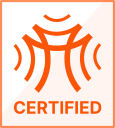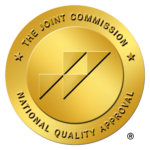Bulimia nervosa is classified as an eating disorder, but many experts recognize that it shares characteristics with addictive behaviors. Individuals with bulimia often experience a loss of control over their eating behaviors, followed by compensatory actions like purging, using laxatives, or engaging in excessive exercise to avoid weight gain. This cycle can become compulsive, resembling the patterns seen in substance use disorders.
Research suggests that bulimic behaviors, particularly binge eating and purging, may activate the brain’s dopamine system, similar to illicit drugs and alcohol addiction. The intense cravings for food, followed by the need to rid the body of excess calories, create a purge cycle that can be difficult to break. In this sense, bulimia has addictive qualities, making eating disorder treatment essential for long-term recovery.
Bulimia’s Addictive Qualities
Bulimia nervosa shares many addictive behaviors found in substance use disorders and drug addiction. One of the primary characteristics is the loss of control over eating behaviors, much like how individuals with alcohol addiction or stimulant abuse struggle with compulsive use despite negative consequences. The urge to binge eat and then engage in purging behaviors, such as vomiting, using laxatives or diuretics, or excessive exercise, can feel overwhelming and difficult to stop.
Bulimic behaviors can be addictive for several reasons:
- Dopamine Response – Binge eating triggers the release of dopamine, a neurotransmitter linked to pleasure and reward, similar to how illicit drugs affect the brain. This can reinforce compulsive overeating and purging behaviors.
- Compulsive Cycle – The purge cycle creates a repetitive, compulsive pattern, much like substance abuse. The temporary relief from guilt or anxiety after purging can make the behavior feel necessary, even when harmful.
- Cravings and Withdrawal – Just as people with substance use disorders experience cravings for drugs, individuals with bulimia nervosa often feel strong urges to binge. If they try to resist, they may experience distress or mood instability.
- Escapism and Coping Mechanism – Many people turn to overeating, restricting, or excessive exercise as a way to escape emotional pain, stress, or low self-esteem, much like someone struggling with alcohol addiction or stimulant abuse.
Because of these factors, bulimia can function similarly to an addiction, making eating disorder treatment crucial for breaking the cycle and restoring mental health.
What To Do If You Can’t Stop
If you feel trapped in the purge cycle and can’t stop binge eating, purging, or engaging in excessive exercise, it’s essential to seek help. Like substance use disorders, bulimia nervosa can take over your life, affecting your mental health, physical well-being, and relationships with family members and loved ones. Recovery is possible, but it often requires professional support and structured eating disorder treatment.
Here are steps you can take if you’re struggling to stop:
Reach Out for Help
Talk to a trusted loved one, therapist, or doctor about your struggles. Seeking support from professionals who specialize in mental health conditions and addiction treatment, like our team at We Conquer Together, can make a difference.
Consider Treatment Options
Our inpatient eating disorder treatment program provides structured care, therapy, and medical support to help break the cycle of binge eating and purging. We also address co-occurring conditions like low self-esteem, impulsivity, and anxiety to promote long-term recovery.
Avoid Triggers
Identify the stressors or triggers that lead to binge eating or purging. This could include body image concerns, emotional distress, or exposure to weight-focused conversations. At We Conquer Together, our therapists help individuals develop healthier coping mechanisms to manage these triggers.
Explore Therapy and Medication
Therapeutic approaches like cognitive behavioral therapy (CBT) and dialectical behavior therapy (DBT) can help change negative thought patterns. In some cases, antidepressants may be prescribed to help regulate mood and reduce urges to binge or purge.
At We Conquer Together, we are committed to helping individuals regain control of their lives and break free from bulimia nervosa. If you or a loved one needs professional help, our inpatient mental health facility in Orange County provides the compassionate care needed for lasting recovery.
Seeking Treatment for Bulimia Nervosa
If you or a loved one is struggling with bulimia nervosa, or other disordered eating behaviors, seeking professional help is one of the most important steps toward recovery. Because bulimia shares characteristics with addictive behaviors and substance use disorders, treatment should address both the mental health disorder and the underlying emotional and behavioral patterns that contribute to the purge cycle. However, not all treatment options are the same, and finding the right professionals is crucial to long-term success.
Steps for Seeking Treatment:
Research Treatment Options
There are various levels of eating disorder treatment, including inpatient residential programs, partial hospitalization programs (PHPs), intensive outpatient programs (IOPs), and outpatient therapy. For individuals experiencing severe symptoms, inpatient care—like the services provided at We Conquer Together in Yorba Linda, California—offers a structured and supportive environment for recovery.
Vet Healthcare Professionals Carefully
Not all mental health providers specialize in eating disorders. When choosing a treatment provider, look for professionals with experience in bulimia nervosa, binge eating disorder, and anorexia nervosa. Ensure they offer evidence-based treatments such as Cognitive Behavioral Therapy (CBT) ,Dialectical Behavior Therapy (DBT) and Medical and Nutritional Support
Verify Credentials and Treatment Approaches
Before committing to a provider or treatment center, ask questions such as:
- Are they licensed and accredited for eating disorder treatment?
- Do they offer individualized treatment plans for co-occurring disorders like anxiety, depression, or substance abuse?
- Do they incorporate medical professionals, registered dietitians, and mental health specialists into their care team?
Consider the Treatment Environment
The recovery process is deeply personal, and finding a comfortable, supportive setting is essential. At We Conquer Together, we provide inpatient mental health care in a serene, structured environment where adults can focus fully on healing.
Take the First Step
Once you’ve found a trusted provider, reach out for an initial consultation. Many centers, including We Conquer Together, offer a confidential assessment to determine the best course of care. Whether you’re seeking inpatient or outpatient eating disorder treatment, starting the process today can put you on the path toward healing.
Deciding whether to seek eating disorder treatment can feel overwhelming, especially with so much conflicting information online. If you’re unsure whether your eating behaviors or struggles with bulimia nervosa warrant professional help, we’re here to support you—without pressure, judgment, or expectations.
Let’s Talk About What’s Best for You
At We Conquer Together, our admissions team is here to answer your questions, help you navigate the overwhelming amount of information, and provide guidance tailored to your situation. Sometimes, just having a real conversation with a person who understands can make all the difference.
If you’re struggling with binge eating, purging, excessive exercise, or concerns about your body image, reach out to us. Whether you’re ready for treatment or just need clarity, we’re here to help you figure out the next steps—at your own pace. Call us today or send us a message. Let’s start the conversation.











